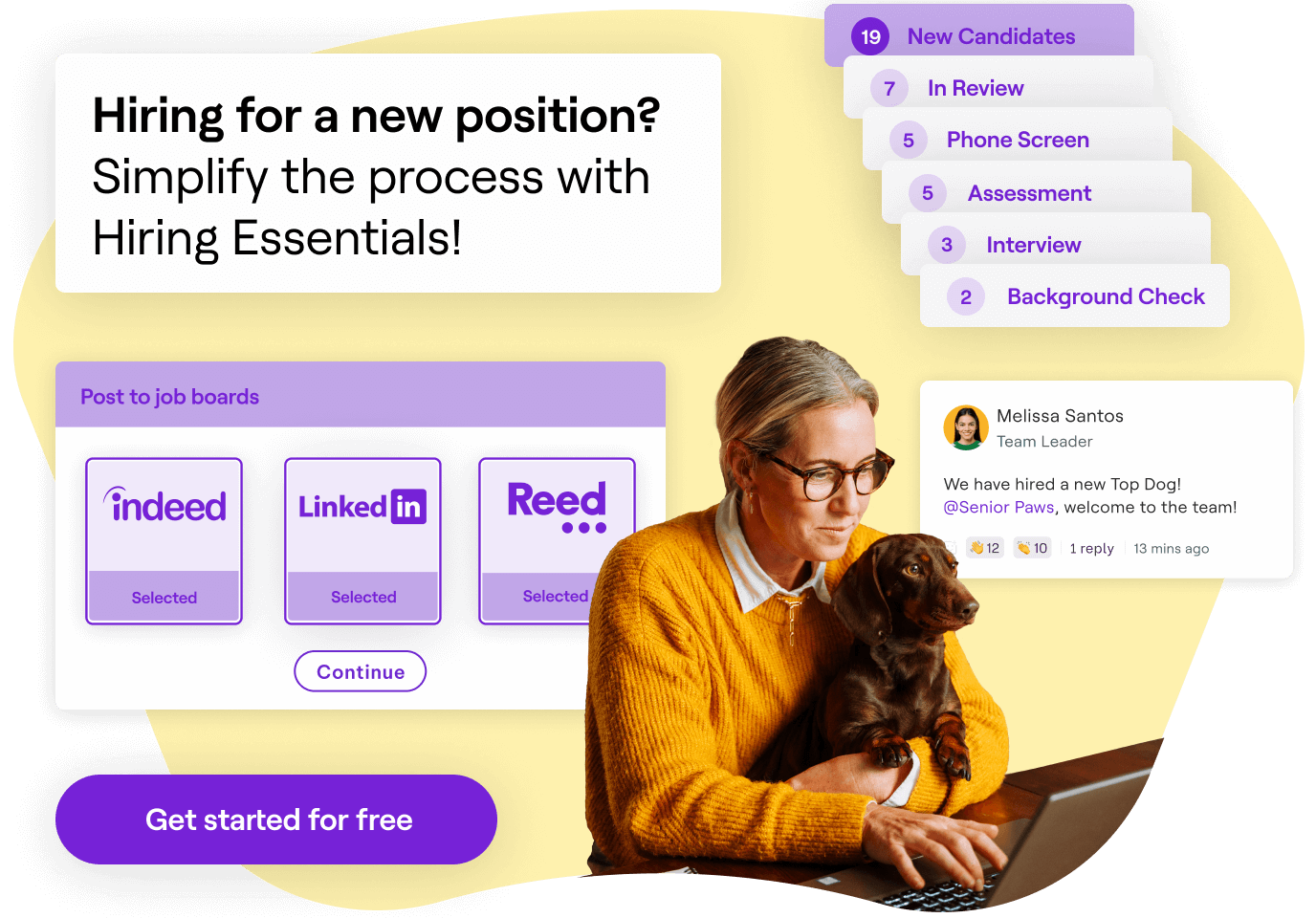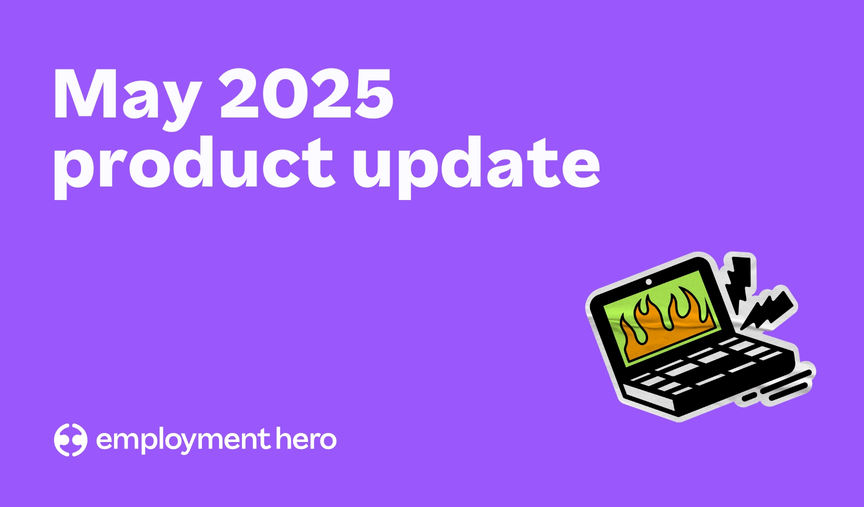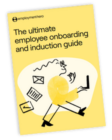How to Hire the Right Person Every Time
Simple ways to ensure that your top candidate is the right person for you to hire.

Hiring should be taken pretty seriously. Depending on the seniority of the role, you can spend months searching for talent, sifting through hundreds of CVs, and conducting dozens of interviews before narrowing it down to a shortlist of potential candidates.
As a hiring manager, you innately have a strong desire to make sure that the prospective candidate you choose to fill the position will be the right employee for the job. From both a skill set match to alignment with your business values and company culture.
Pro tip: Go digital with recruitment management software and spend less time on paperwork
What are the consequences of a bad hire?
Hiring the wrong person for an important role can not only be a major inconvenience but also leads to a huge waste of time, money, and other resources being spent on the hiring process. Leave that wrong person in the role for too long and they could end up creating problems for your business.
These risks are particularly dangerous for new or smaller businesses, where initial hires are often integral in setting the tone for the company culture going forward.
How can you tell fake candidates apart from the genuine? How do you know if, in the end, you’re hiring the right person?
Pro tip: Get top talent with employee referral programs
Five tips on selecting the right person for the job
There are plenty of things to consider when you are trying to ensure a job candidate is the right person to hire, and luckily for you – we’ve written them down for you.
Here are our top tips on ensuring potential candidates are the right employee for your business.

1. Understand the candidate’s aspirations
Don’t just think about the then and now when you (or your recruitment team) create a job description for the new role you’re hoping to fill. Pay attention to how you see the position growing within the next few years.
How does your ideal candidate fit into your growth plan for your business, not just the current job opening? This might mean looking for people with a wider skill set – or someone with a diverse or interesting background that could bring a fresh perspective to how your business is working.
This aspect is especially important when trying to recruit highly skilled passive candidates. After all, they would need a solid reason to leave their current position.
Read more: Email outreach template for passive candidates
By keeping these in mind while creating your job description, you filter out unqualified candidates and increase the chances of finding the right candidate, even before job applications come through.
With job progression in mind, you now want to get a sense of the career goals of each potential candidate. This should be a key part of your interview process to help you see what a candidate thinks of the available job and if they could be a good fit for you, accounting for the potential job growth in the future.
Get a clear sense of:
a) How do you foresee the ideal candidate growing in the role that you’re hiring for
b) An understanding of the career goals of your potential candidate
Getting a sense of both aspects will help you determine whether or not there is alignment between your candidate and the company’s goals.
2. Pay attention to the questions candidates ask you
It’s common knowledge that any good candidate should ask thoughtful questions throughout the job interview and hiring process. This shows preparedness and engagement on the part of the candidate. An interview should be considered less as a question/answer session – and more as a dialogue between you and someone who can help your business grow.
The best hires and top talent care about the team they’ll be on, who will be managing them, and how they can help take the company forward. Make a mental note of the questions a candidate asks throughout the interview/recruitment process.
If they are only questions such as: ‘What are the working hours’ ‘When do we get paid’ ‘How much holiday do we get’ They may be more interested in getting their paycheck every month than the actual business itself.
Obviously, these are questions people need to be answered at some point in the process, but also look for candidates who ask questions like: ‘Where do you see the business in 5 years’ ‘What’s been the most successful (or unsuccessful) projects the business has set up ‘Why are you hiring for this role?’
These types of questions show that they really want to get a better understanding of the business and how they can help in their new role.

3. Ask qualified candidates what they’re not good at
You know that the right hire won’t be great at everything – it’s not humanly possible. So, a great way to ensure that you’re hiring the right person to hire is to ask them what they know they’re not good at. Their answer will help you understand their professional expectations for themselves and whether your assessment of them matches their own.
This question encourages prospective employees to articulate areas where they lack certain tangible skills. It will help you gain a good insight into whether or not prospective candidates are working to improve – giving you insight into candidates’ work ethic and personal goals if you can see they are actively trying to improve themselves.
4. Be wary of hiring manager bias
They say you should always trust your gut. What is your first reaction to a candidate? While you might be tempted to rely purely on logic, it’s important to go with a candidate who you feel, on an instinctive level, will be a good fit.
No matter how many personality assessments they take, how many interviews they conduct, or what questions you ask, the common denominator has always been simple: when you trust your gut on hiring decisions you make the best choices. Dismissing or ignoring your instincts throughout the hiring process can ultimately do more harm than good.
However, to play devil’s advocate, what if your gut is wrong. Tom Sorenson once quoted, “Using your gut is similar to scratching the surface. You only discover the superficial aspects of the candidate”.
There have been copious amounts of research that show hiring managers’ biggest flaw is hiring people they liked in the interview process. Hiring people just because they made a great first impression rather than evaluating their skill set or background.
When hiring the perfect candidate, make sure you take all these factors into consideration to make sure you’re hiring the right person in place for the job.
Read more: How to overcome unconscious bias when hiring
5. Do they add to your company’s culture?
There’s a huge difference between hiring someone because they are a good cultural fit vs. hiring someone who would be a cultural add.
Cultural fit means the candidate fits perfectly within the existing boundaries of the business. The individual’s attitudes, values and beliefs are all in line with the core values and culture of the business as they currently stand.
Cultural add is when you select a candidate based on what they can add to the business. Whether that’s because of their background, experiences or if they connect to multiple plans that will help your business expand.
When we asked our very own chief people officer, Alex Hattingh, and UBER recruitment guru Katie Noakes – they both agreed that they lean more towards hiring for cultural add. In the conversation, Katie said that she personally ‘hates culture fit as a term’ and will always look for ‘candidates that offer a culture add’.
Read more: Why employer branding matters

Why find candidates that add to your company culture?
The right person for the role should bring something new to your business whilst still complimenting what you already have. They should help you get one step closer to your aspirational company culture.
There are other reasons why many recruiters and hiring managers are moving more towards culture add:
- You should focus on a candidate’s passion. But hiring for cultural fit may mean you are prioritising passion over experience which is a big issue for long-term business success. You will end up with an entire team of inexperienced employees with a lot of ambition that will increase inefficiencies across the board.
- Cultural fit lends itself to whether a candidate is a good social fit. The old-school ‘Beer Test’ is the first thing that comes to mind. You are hiring to produce results for your business – not to socialise. Although you want to bring people into the team who are good characters, this shouldn’t be the only reason you hire them.
- Constantly hiring candidates that are all a great cultural fit can lead to homogeneity: this is defined as the quality or state of being all the same or all of the same kind. This means that new ideas are limited if everyone has the same or similar ways of thinking. New ideas are now not available to your business that could lead to your growth because your culture’s homogeneity stifles ideas that challenge any new ways of thinking.
- Not hiring someone because they’re a bad ‘culture fit’ does not give that candidate good constructive feedback. You want to make sure that the 99% of candidates who you turn down, walk away with a positive candidate experience even though they didn’t get the role. This way they will stay on board as either customers or brand advocates and will be more likely to apply again in 6 months’ time when they’ve had time to work on the feedback given.
Cultural add, on the other hand, solves these issues by focusing on what a person can add to a team or business that’s unique and different. You need passionate people, and also candidates with different experiences to guide you in the right direction.
Pro tip: Showcase your company culture as a strategy for recruitment marketing

Hire not just the right person, but the right team
Businesses need technical capabilities, business acumen, relationship management or perhaps cultural awareness in order to expand their business. These are all experiences that don’t necessarily come within just one hire.
By hiring a mixture of different candidates with those different experiences, everyone learns more from one another.
Hiring the right candidate begins even before the interview process, so be sure to create a job advertisement that stands out from competitors.
There you have it. Simple ways to ensure that your top candidate is the right person for you to hire.
Be sure to check out our onboarding and recruitment guide to get insights on creating a recruitment process that works.
Want to expand your candidate search? Find out about the cost involved in hiring international employees from:
Related Resources
-
 Read more: Product Update: May 2025
Read more: Product Update: May 2025Product Update: May 2025
Follow our May 2025 product update as we share all of the latest and greatest features we’ve released over the…
-
 Read more: The Construction Industry Scheme (CIS): A Guide For Employers
Read more: The Construction Industry Scheme (CIS): A Guide For EmployersThe Construction Industry Scheme (CIS): A Guide For Employers
Discover our Construction Industry Scheme guide. Whether you’re a business owner or HR professional, understanding CIS is key for compliance…
-
 Read more: Dealing with mental health in business—From a HR professional
Read more: Dealing with mental health in business—From a HR professionalDealing with mental health in business—From a HR professional
Discover our in-depth guide to mental health sick leave. We look at what it is, why it is taken and…












